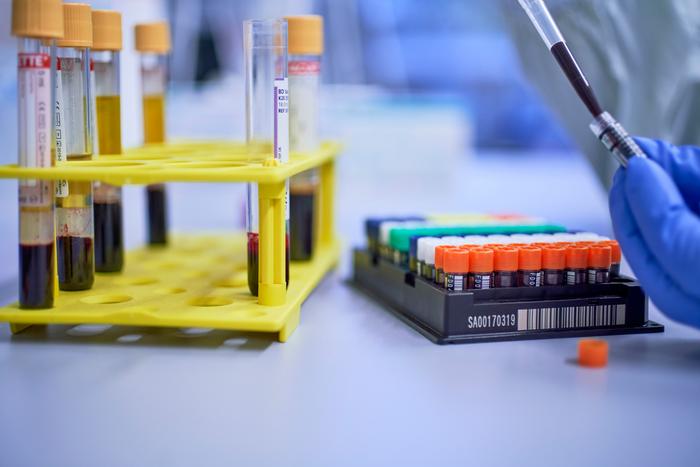Summary: A 23-year-old woman with severe systemic lupus erythematosus experienced complete remission after treatment with teclistamab, a cancer medication, marking a potential breakthrough in autoimmune disease therapy.
Estimated reading time: 6 minutes
A cancer medication has produced astonishing results in treating a severe case of systemic lupus erythematosus (SLE), offering new hope for patients with resistant forms of this debilitating autoimmune disease. Researchers at Charité – Universitätsmedizin Berlin report that a 23-year-old woman, previously wheelchair-bound due to her condition, is now symptom-free after receiving teclistamab, a drug typically used to treat multiple myeloma.
The case study, published in the New England Journal of Medicine, details how the patient, who had not responded to nine previous therapies, experienced a complete remission of her lupus symptoms after just five injections of teclistamab over five weeks. This marked improvement has persisted for several months, with no detectable signs of the disease in clinical or laboratory tests.
Why it matters
Systemic lupus erythematosus affects an estimated 30,000 people in Germany alone, with 90% of cases occurring in women. While treatments exist, they are not effective for all patients, leaving some with debilitating symptoms that significantly impact their quality of life. This case demonstrates the potential for repurposing existing cancer drugs to treat severe autoimmune diseases, potentially offering new options for patients who have exhausted conventional therapies.
A Novel Approach to Treating Lupus
Dr. Tobias Alexander, the treating physician at Charité’s Department of Rheumatology and Clinical Immunology, described the patient’s case as exceptionally severe. “Due to the persistent pain she was experiencing, the patient could no longer walk, was wheelchair-bound, and her kidneys were at risk of failing,” he explained. The disease was attacking four of her organ systems, causing blistered skin, severe joint and kidney inflammation, and dangerously low red blood cell counts.
After exhausting all standard treatment options, Dr. Alexander proposed using teclistamab, a bispecific antibody approved for treating multiple myeloma. This innovative approach targeted the root cause of lupus – overactive plasma cells producing harmful autoantibodies.
“Teclistamab is highly effective at destroying the plasma cells and also works against their progenitor cells, which would otherwise quickly produce new plasma cells,” Dr. Alexander stated. “We therefore presumed that the cancer medication could eliminate the cause of the systemic lupus and help the patient for the long term.”
Remarkable Results and Potential Risks
The treatment, administered “off-label” with the patient’s consent, yielded rapid and significant improvements. Within weeks, the patient’s kidney function and blood levels improved, and her skin and joint inflammation completely subsided. By mid-April, no autoantibodies were detectable in her blood, even after discontinuing immunosuppressants and cortisone.
“The patient is in full remission,” Dr. Alexander reported. “That means she’s no longer experiencing any symptoms of her disease and we can no longer find any indication of systemic lupus, either clinically or in the laboratory.”
However, the researchers caution that the treatment carries considerable risks. The patient experienced severe cytokine release syndrome, pneumonia, and sinusitis during the therapy. Prof. Jan Krönke, who oversaw the oncological treatment, noted that these side effects were more serious than those typically seen in conventional rheumatological therapies but were consistent with known reactions to teclistamab in cancer patients.
Implications for Future Research and Treatment
While the results are promising, the researchers emphasize that more studies are needed before teclistamab can be considered for wider use in treating lupus. Dr. Alexander believes that if the positive effects prove long-lasting and are confirmed in further studies, the potential benefits in rheumatology could be significant.
“For now at least, teclistamab’s therapeutic results for the patient are comparable with the impact of CAR T-cell therapies,” he said. “The difference being that the bispecific antibody is much easier to use and can be administered over a shorter period, which would be an enormous advantage.”
CAR T-cell therapies have shown promise in keeping autoimmune diseases at bay for years in some cases but require chemotherapy and gene therapy, making them time-consuming and resource-intensive. In contrast, teclistamab offers a potentially simpler and more accessible treatment option.
Ongoing Monitoring and Future Directions
The treatment team continues to closely monitor the patient and her immune system’s activity to determine the long-term effects of teclistamab. This case study, while encouraging, represents just the beginning of exploring this new approach to treating severe autoimmune diseases.
As research progresses, it may open new avenues for patients with refractory lupus and potentially other autoimmune conditions. However, the balance between efficacy and safety will be crucial in determining the viability of this treatment for wider use.
Quiz:
- What type of medication is teclistamab primarily used to treat? a) Lupus b) Multiple myeloma c) Rheumatoid arthritis
- How many previous therapies had failed to sufficiently alleviate the patient’s symptoms? a) 5 b) 8 c) 9
- What was a significant risk associated with the teclistamab treatment? a) Hair loss b) Weight gain c) Cytokine release syndrome
Answers:
- b) Multiple myeloma
- c) 9
- c) Cytokine release syndrome


